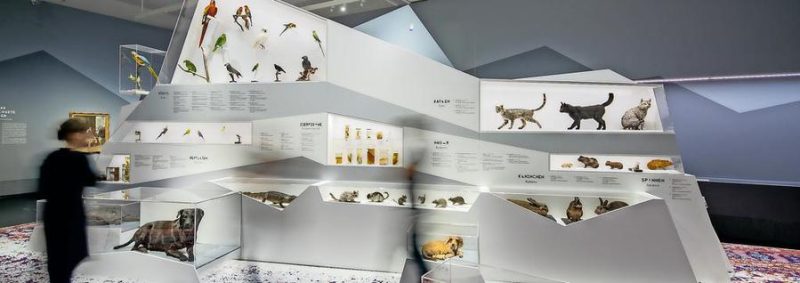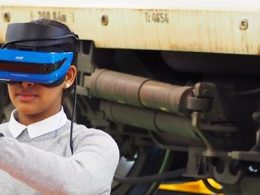"About pets and their people" is the subtitle of the latest exhibition at the Hygiene Museum in Dresden. With around 250 exhibits, the curators search for answers to the question of what makes up this peculiar network of relationships. Visitors can even use VR to literally slip into the role of a pet.
More and more museums, for example the Stapferhaus in Lenzburg use VR as a special exhibition element. At the latest exhibition in the Dresden Hygiene Museum is about pets and their owners. Curator Christoph Willmitzer explains in an interview in the Deutschlandfunkthat they are opening up a very broad spectrum with this project. The exhibition with around 250 exhibits ranges from beautiful and impressive moments with pets to dark and perhaps also disgusting topics such as cruelty to animals or zoophilia, commonly known as bestiality, because they don't want to leave it unmentioned.
Animal rights and ethics with VR
They are dedicating an entire room to animal rights and ethical issues. "What we are really focussing on - and I think this is also something new or surprising about the exhibition - we are dedicating an entire room to animal rights and ethical issues. We are changing our perspective: How are pets actually doing with everything we do to them?" says Willmitzer.
The museum is using VR for the first time to change perspectives. Visitors have the opportunity to slip into the scales of a fish and experience what it's like to live your life in an aquarium. To experience the artificial world, you have to enter an oversized aquarium - without water, but with VR goggles dangling from the ceiling. As soon as you put them on, a fish's view of its underwater surroundings opens up in virtual reality. "The fact that a giant crab and a jellyfish appear may be more reminiscent of the open sea than the confines of an aquarium, but it doesn't detract from the experience. These virtual reality goggles (of which there is only one) should soon see the first queues of visitors inside the exhibition," says one enthusiastic tester.
According to Willmitzer, such a change of perspective is extremely important in order to show visitors something in an impressive way. Of course, we can only speculate about how pets perceive their environment and how they feel about us humans, but perhaps it will inspire one or two people to think a little differently.
Source: Dresdner Neuste Nachrichten / Deutschlandfunk / Dresden Hygiene Museum









